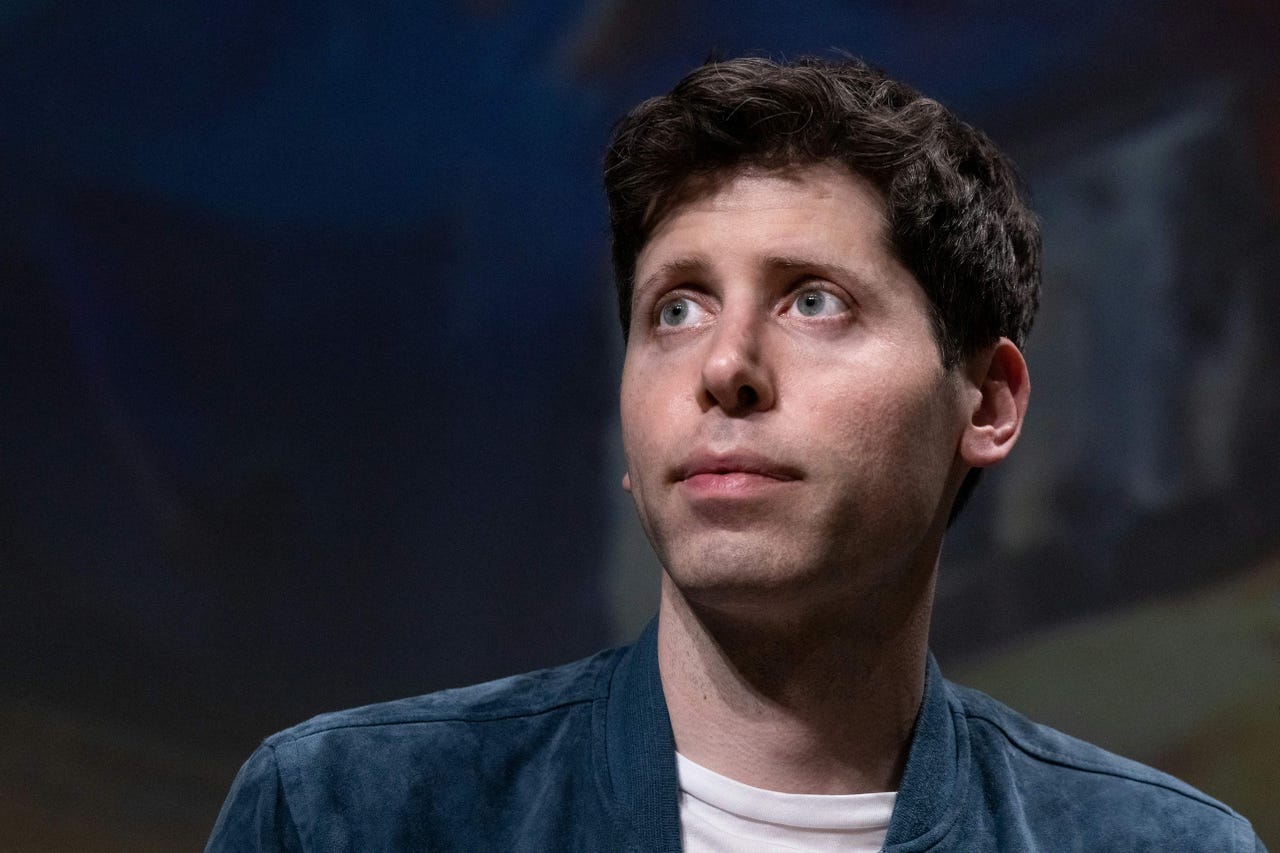
Will AI ever be as intelligent as human beings? That depends in part on how you define intelligence. But whatever your definition, achieving the goal of AI superintelligence is on the bucket list of Sam Altman, the CEO of OpenAI.
In a recent interview with The Financial Times, Altman discussed the challenges in making AI as smart as humans and how Microsoft’s funding is a key step on the road to AGI, or artificial general intelligence.
Also: Thanks to my 5 favorite AI tools, I’m working smarter now
To develop more advanced versions of ChatGPT, OpenAI has received investment capital from Microsoft to the tune of $10 billion spread out over the next few years. And Altman is looking for more funds from the software giant and other investors as his company continues to expand its concepts and constructions of AI.
In the interview, Altman said that OpenAI’s partnership with Microsoft CEO Satya Nadella was “working really well” and that he expected “to raise a lot more over time,” a necessary factor as it tries to fashion smarter and more sophisticated AI models.
Asked if Microsoft would invest more money, Altman told The Financial Times: “I’d hope so. There’s a long way to go, and a lot of compute to build out between here and AGI… training expenses are just huge.”
Also: I spent a weekend with Amazon’s free AI courses, and highly recommend you do too
Though ChatGPT has generated a lot of buzz for OpenAI, the challenge for the company has been to create a sustainable and profitable business model. To prove its value to users and investors alike, OpenAI held its first ever Dev Day developers conference earlier this month at which it unveiled a host of new initiatives.
The company is now offering a custom GPT feature through which subscribers can create their own chatbots for specific tasks. A GPT store is due to open later this month, featuring the best GPTs for sale and eventually letting its creators share in the revenue. OpenAI also expanded the knowledge cutoff dates for both GPT-3.5 and GPT-4, improving the AI’s prowess as a research tool. But AI remains the core product.
“Right now, people [say] ‘you have this research lab, you have this API [software], you have the partnership with Microsoft, you have this ChatGPT thing, now there is a GPT store,'” Altman told The Financial Times. “But those aren’t really our products. Those are channels into our one single product, which is intelligence, magic intelligence in the sky. I think that’s what we’re about.”
Also: GPT-3.5 vs GPT-4: Is ChatGPT Plus worth its subscription fee?
With all that in mind, superintelligence remains the ultimate goal for Altman and OpenAI. ChatGPT and other generative AI chatbots hold vast amounts of data, can carry on conversations, and can respond to a variety of questions and requests. But they don’t possess intelligence the way that human beings do. To be truly intelligent, an AI would at the very least need to be able to independently and autonomously perform any task that a human being can perform.
In the interview, Altman said that his company is trying to build more autonomous agents, ones that can perform specific tasks such as running code, making payments, sending emails, or filing claims. The plan is to make these agents more and more powerful, he said, as the actions get more and more complex.
OpenAI is also working on the next iteration of its AI model — GPT-5. With the current versions of GPT already able to generate text, computer code, and multimedia, what new talents will GPT-5 possess? Even Altman acknowledged that it’s hard to tell until the developers start training the new model.
Also: OpenAI CEO sees uphill struggle to GPT-5, potential for new kind of consumer hardware
That still leaves OpenAI with the quest for the holy grail of superintelligence. The effort to develop AGI requires a missing piece of the puzzle so that AI can make the necessary fundamental leap in understanding.
To draw a comparison, Altman referred to Isaac Newton who first needed to read math textbooks and talk to professors to gain the necessary knowledge. That’s what the current GPT models can do, he said. But Newton would never have invented calculus just by reading textbooks.
“And neither are our models,” Altman added. “And so the question is, what is the missing idea to go generate net new… knowledge for humanity? I think that’s the biggest thing to go work on.”
Artificial Intelligence






















